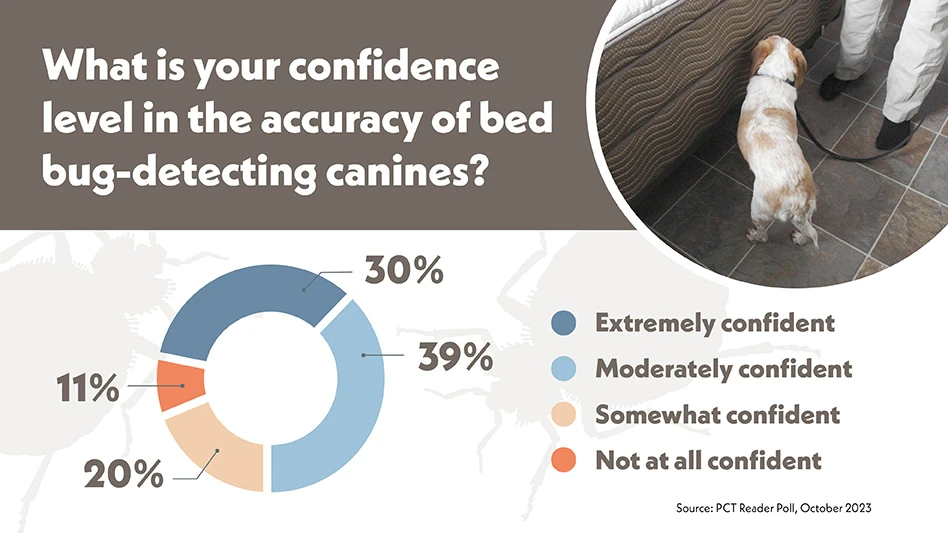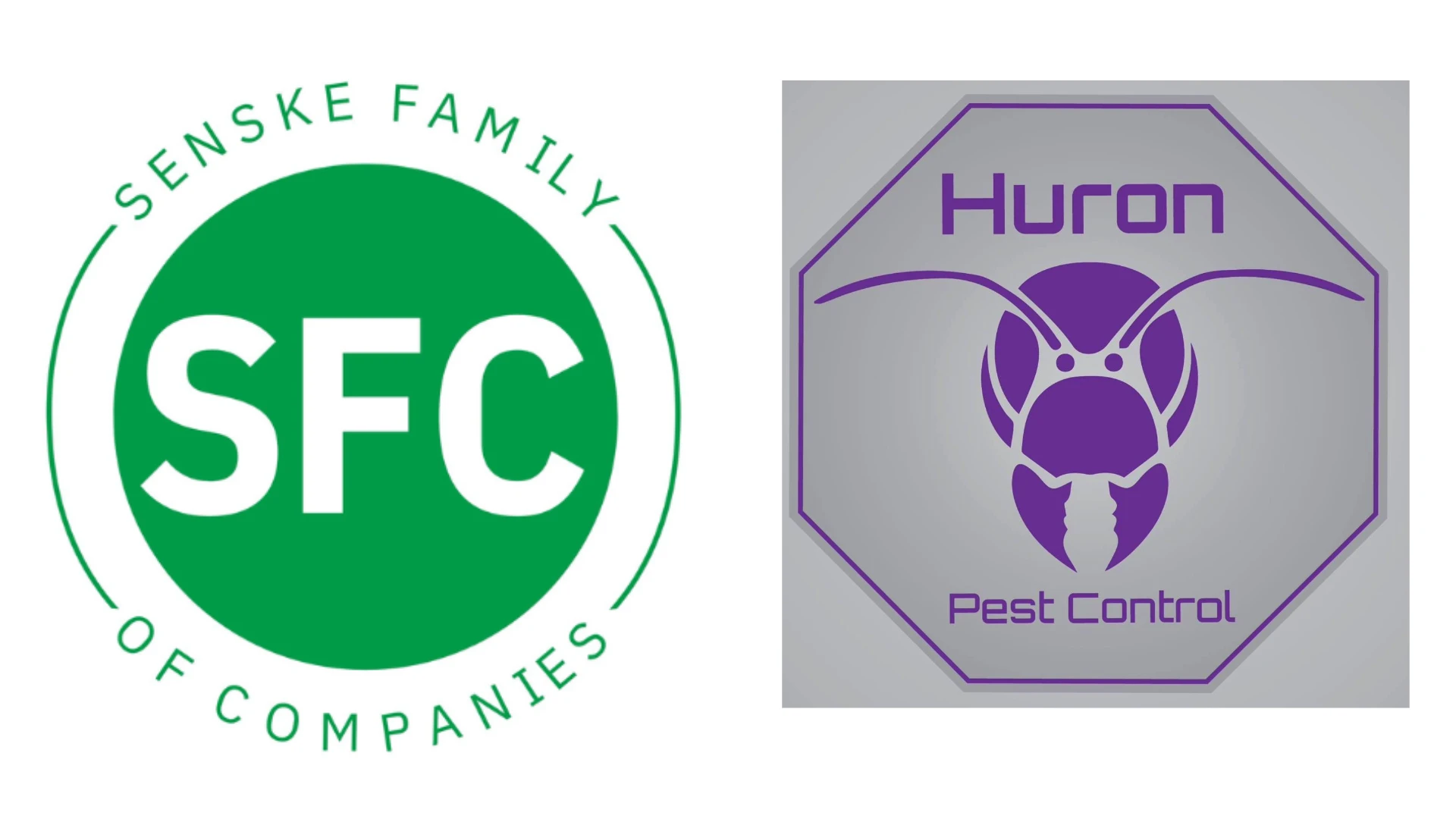
CLEVELAND – Bed bug-sniffing dogs have found a place in the pest control industry. Some pest control companies own a dog(s) and have a handler(s) on staff, while others contract with handlers who provide this service.
As noted in the Mallis Handbook of Pest Control, the utility of canines in large-scale inspections is “a good option for providing inspections in non-residential settings” like offices and theaters. However, Mallis noted that some infestations may be missed while others may yield false positives. For the latter, Mallis suggested a “method for verifying the dog’s findings” by either locating bugs or eggs, or performing and comparing inspections by two independent teams.
Most of those polled by PCT (60 percent) responded they are moderately (39 percent) or extremely (30 percent) confident in the accuracy of bed bug-detecting canines. Twenty percent said say are somewhat confident and only 11 percent said they are not confident at all in bed bugs’ accuracy.
Brian Nichols, operations manager, Advanced Maintenance and Pest Solutions, Chicago said he is “somewhat confident” in bed bug dogs. In his experience, the following are reasons why dogs sometimes fail.
- Dogs not being properly trained and maintained
- Dogs being overworked. Nichols said they need to stay motivated and this is why it is important they have a quality handler.
- Dogs cannot sniff areas in the ceiling of the unit. Nichols said If a bed bug is hiding above the resident, then the dog doesn’t have a chance to find it. “This also goes for areas that are located on high shelves or above doorways. We often find bed bugs in the ceiling and above closet doors,” he said.
Nichols added that when you factor cost, this method is not very practical for most bed bug situations. “Don’t get me wrong, they are very useful for certain types of clients. But, those are clients with high risk to legal exposure or ones that are government-funded.”
Participate in our newest poll question: Which best describes carpenter ant activity in your area during the last 12 months?
Latest from Pest Control Technology
- Webinar: Employee Incentives — Going Beyond the Annual Raise
- Pest Control Companies Helping Neighbors in Need Eradicate Bed Bugs
- Why Does Marketing Feel So Opaque?
- How Did This Pest Get Its Name?
- Rose Pest Solutions Honors Top Performers with Annual Chief’s Club Awards
- Doug Foster on Termite Control Equipment, Resources
- Pest Control Consultants Acquires EcoGuard Pest Control
- Pest Index Increased 9 Percent YOY in February






